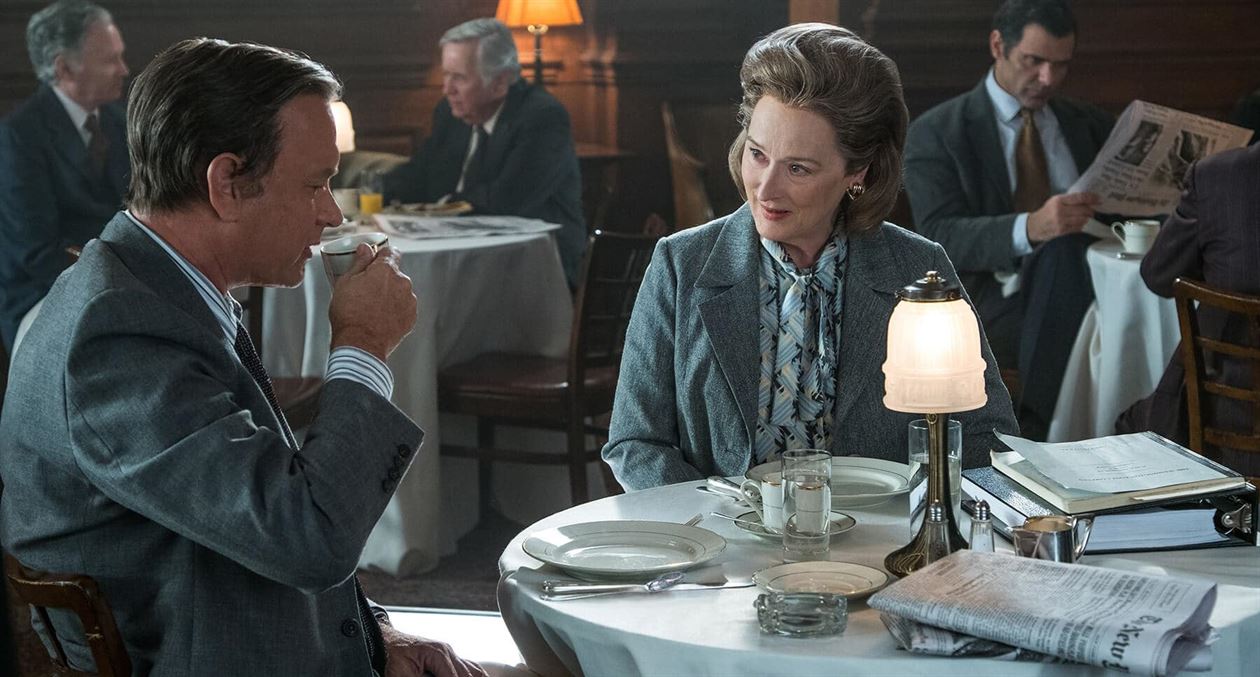During the current battle between the federal government and the press, Liz Hannah and Josh Singer bring a true story back to life when the two clashed over the First Amendment in Steven Spielberg’s Oscar nominated film,“The Post.”
The film takes place during the Vietnam War after classified military documents regarding the lack of progress in the region are leaked to the American press. These documents contained government secrets about how a victory for the U.S. seemed hopeless, spanning over four presidencies including the Harry S. Truman, Dwight D. Eisenhower, John F. Kennedy and Lyndon B. Johnson administrations. The documents would later be known as the “Pentagon Papers.”
One of the first news outlets to publish a story about the scandal was The New York Times. News of the leak spread like wildfire, increasing the amount of protests against the war effort nationwide. As a result of this, the White House ordered the immediate halt of any further publications from the Times.
Back then, The Washington Post, also known as the Post, was just a local newspaper without a lot of attention nationally. The former publisher, Phillip Graham, had recently committed suicide, leaving the business to his wife Katharine Graham, played by Meryl Streep. Graham became one of the heads of a male-dominated industry. She felt pressured to make decisions based off of her male colleagues.
With no competition and an attempt to make national news, the assistant editor of The Post, Ben Bagdikian, tries to locate the source of the leak—Daniel Ellsberg, a military analyst played by Matthew Rhys. Bagdikian meets Ellsberg in a motel room and brings the papers back to Washington, D.C. to the Editor-in-Chief Ben Bradlee, who is played by Tom Hanks.
Bradlee and Bagdikian face a strict deadline to write their front page story before the paper is released the next day. Knowing that the team could face criminal charges including jail time, the team discusses whether or not to publish it. After hours of arguing, Graham finally stands up for what she believes in without being influenced by others. She published the story, which not only placed her mark on history but also established the Post as a national media outlet.
The issue highlighted throughout the film is whether or not to publish a story that the federal government wants to shutdown. The Espionage Act made it a crime for any citizen to disclose information about the U.S. that could endanger the country. For news outlets, this was a form of censorship. After publishing the story, the Post received the same charges that the Times faced, but the charges were eventually dropped by the Supreme Court because the publications were protected under the First Amendment.
“The Post” demonstrates the importance and the value of the First Amendment in American society. The timeliness of the film could not be more perfect because of the current administration’s views on the press.
There is an ample amount of similarities between America in the 1970s and today regarding how the government views the free press. Both administrations have shown opposition to what the media distributes to the public and believes that the purpose of the media is to expose lies. The media’s purpose in this situation is to inform the public and tell the truth.
The film also has an element of feminism as Graham becomes annoyed that she is not being taken seriously because she is a woman. By allowing the story to be published, she proved that she can be a major player in the industry and that she can hold the same position as a man and get the job done.
Critics gave this film an eight out of 10 rating based on factors such as political views. While many can argue the historical accuracy of the film, it exceeded its purpose with the message it gives to viewers about the power of the media and the importance of the First Amendment.
“The Post” is a very relevant film in today’s society and is a reminder that the First Amendment is a powerful tool. Its inspiring theme is what makes it a must-see film.



